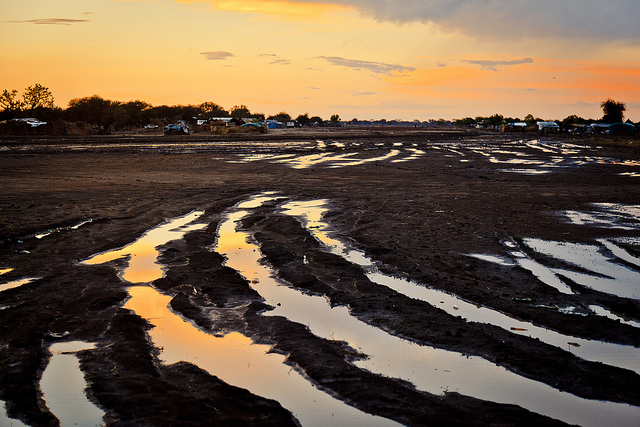
Abyei should remain accessible to humanitarians operating from both Sudan and South Sudan, the U.N. humanitarian coordination office, or OCHA, and former southern minister Luka Biong Deng said recently.
The disputed area, which sits between North and South Sudan, was forcibly taken by the Sudanese army in May while talks aimed at resolving whether the area belongs to the North or the South were still ongoing. The attack displaced most of the area’s population and was followed by the claim, from Sudanese President Omar al Bashir, that Abyei belongs to the North.
In June, northern and southern officials signed a temporary agreement that spelled out arrangements for the volatile region until a resolution on the final status of Abyei could be reached.
It remains uncertain whether Khartoum will continue to assert that Abyei belongs to the North until the region’s status is determined. One key question that has arisen is how this legal understanding of Abyei’s status may affect humanitarian access to the region once the area’s population begins to return—and whether Khartoum will argue that it alone has the power to grant clearance for access to the area.
An estimated 110,000 people remain displaced from Abyei and are scattered in locations to the south of the area. Humanitarian agencies responding to the needs of the displaced population have been largely operating in South Sudan, where the new government in Juba has control.
The real test will be when residents of Abyei begin to return home. “Will we be able to continue doing the same work—including in the Abyei area—and under which circumstances?” said head of OCHA South Sudan Giovanni Bosco in an interview with Enough.
The Sudanese government has a long history of obstructing international humanitarian assistance, and the current conflicts in the border areas of South Kordofan and Blue Nile are no exceptions to Khartoum’s record.
Abyei residents have little to return to after the northern army’s invasion and the subsequent looting. Satellite images around the time of the initial attacks documented widespread destruction of homes and villages.
According to the U.N., rampant looting and burning of homes by northern soldiers and affiliated forces took place under the northern occupation.
More recently, flooding from heavy rains has severely limited access to the displaced. According to IRIN, about 40,000 people in one displaced site, Agok, have been living on half rations in September because the area is unreachable. Continuing to support the Abyei population once they begin to return will “be of utmost importance,” OCHA’s Giovanni Bosco said.
Since May, OCHA has been advocating for an access agreement that would allow humanitarians registered either with the Juba or Khartoum governments to operate in Abyei, a point that was also stressed by former southern minister Dr. Luka Biong Deng in a paper recently published by the non-profit Kush, Inc.
If the emergency response to Abyei was limited to operations from the North, there are questions of whether such responses could be effective, given the impediments created by three ongoing conflicts along the North-South border. “Logistically it would be difficult to access Abyei from the North because the rear base for humanitarian support is Kadugli, in Southern Kordofan,” wrote Deng. Fighting broke out in South Kordofan in June and according to the latest U.N. readout on the situation, clashes have taken place in the last week in the areas surrounding Kadugli.
The former official stated that even with the independence of South Sudan, Abyei retains its “special” status between the now two separate countries. “It is important to recognize that Abyei is a contested area between North and South Sudan and until its status is determined legally and politically, it retains a special status between both nations,” he wrote. Under the temporary agreement, a joint North-South body is mandated with the administration of Abyei—evidence that the region is meant to remain under dual jurisdiction, Deng said.
Photo: Flooded airstrip in Agok (Enough/Tim Freccia)

